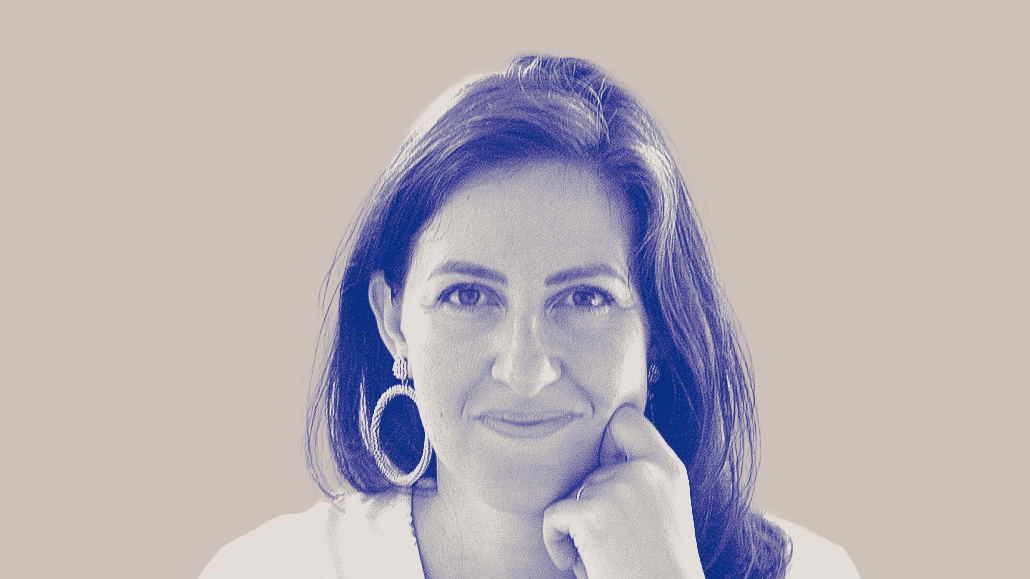‘People doing the work have more power’: We Are Rosie founder Stephanie Olson on freelance network’s growth, war on talent

Freelance marketplace We Are Rosie has grown dramatically since it was founded nearly four years ago — in 2019 roughly 800 freelancers were part of We Are Rosie; this year more than 10,000 freelancers are part of the network — as brands and agencies tap freelancers for projects. That rapid growth was recently recognized with an investment from Align Capital in late December valuing the company at $110 million.
Digiday caught up with founder and CEO Stephanie Olson to hear how We Are Rosie will continue to grow, how advertising is changing and how the talent war will continue in 2022.
This conversation has been edited and condensed for clarity.
You’ve seen tremendous growth in the last two years. Tell us about that.
We’ve tripled in size this year after doubling in size in 2020. Even in the midst of COVID, it has been a crazy run for this team. We brought on a ton of enterprise clients too so we have all these big Fortune 500 brands like Walmart, IBM, Microsoft and Meta that are using Rosies for programs. We finally feel like we’ve reached the place where we’ve fully created the category [of freelancers working with brands and agencies through our market place], we’ve normalized this way of working. CMOs are setting aside budget[s] for us on an annual basis. We’ve fought the good fight to create the new category of legitimized flex work and marketing. And now it’s time to accelerate everything we’re doing across the board.
Given that We Are Rosie is working to normalize marketers working with freelancers, I’m curious about your take on the future of the agency business.
I think that there’s always going to be a place for retainer contracts with agencies for bigger brands. All of our Blue Chip clients should have an agency of record and I think they always will. I think we’re going to continue to see a lot of movement. A lot of clients are getting frustrated with their agencies in terms of not having the butts in seats that they’ve been promised, and they’re getting, as we all know, more savvy about keeping tabs on all of that. Some of those talent-related frustrations are boiling over onto the brand side. And so we’ll continue to see a lot of movement and agencies coming up for review.
Are there other trends you’re seeing?
One of the things I really see as a huge trend, and of course it’s from my vantage point, we work with 40 agencies, and they’re starting to promote people into positions that are like vp of the talent community, which is not just an HR position, or a people position. It is like a layered workforce position. How are we going to complement our full-time traditional employees with part-time talent? With freelancers? Flex talent? Partnering with small, independent agencies?
This layered workforce idea is just permeating all of the industry, and we’re certainly seeing it on the brand direct side as well. It’s going to continue to proliferate amongst agencies as well. I think the folks that ignore that are going to keep seeing their accounts coming up for review, and they are going to keep seeing their partners on the brand side pushing them and getting frustrated because they don’t have the right talent to do the work. So we’ll continue to see more flexibility across all of the agencies and the holding companies are thinking about how work could get done within their own kind of four virtual walls these days.
Lots of people have been talking about the talent war at agencies and the Great Resignation. Do you have any advice for agencies and brands on recruiting talent now?
They really have to understand that the power dynamic has changed. It’s probably the first time in my career that I could say confidently that the people doing the work have more power than the employers and a lot of ways. They have a lot of options, they can go to other [agencies or brands]. Because of the talent shortage, there’s no shortage of jobs for them to hop to and get more money or better perks or a better way of working.
It’s also never been easier for people to become an entrepreneur and kind of stand up their own shop, or to collaborate with people on the other side of the world and build their own kind of mini agency. So I think they really have to embrace that people have options and choices. And that, you can no longer treat talent like you have all the power because you don’t. And that’s going to be a big eye-opening lesson because the people that don’t understand that are going to continue to see [people] trail out the door.
More in Marketing

Agencies create specialist units to help marketers’ solve for AI search gatekeepers
Wpromote, Kepler and Jellyfish practices aim to illuminate impact of black box LLMs’ understanding of brands search and social efforts.

What AI startup Cluely gets — and ad tech forgets — about attention
Cluely launched a narrative before it launched a tool. And somehow, it’s working.

Ad Tech Briefing: Start-ups are now table stakes for the future of ad tech
Scaled ad tech companies need to maintain relationships with startups, when the sector is experiencing ongoing disruption due to AI.








